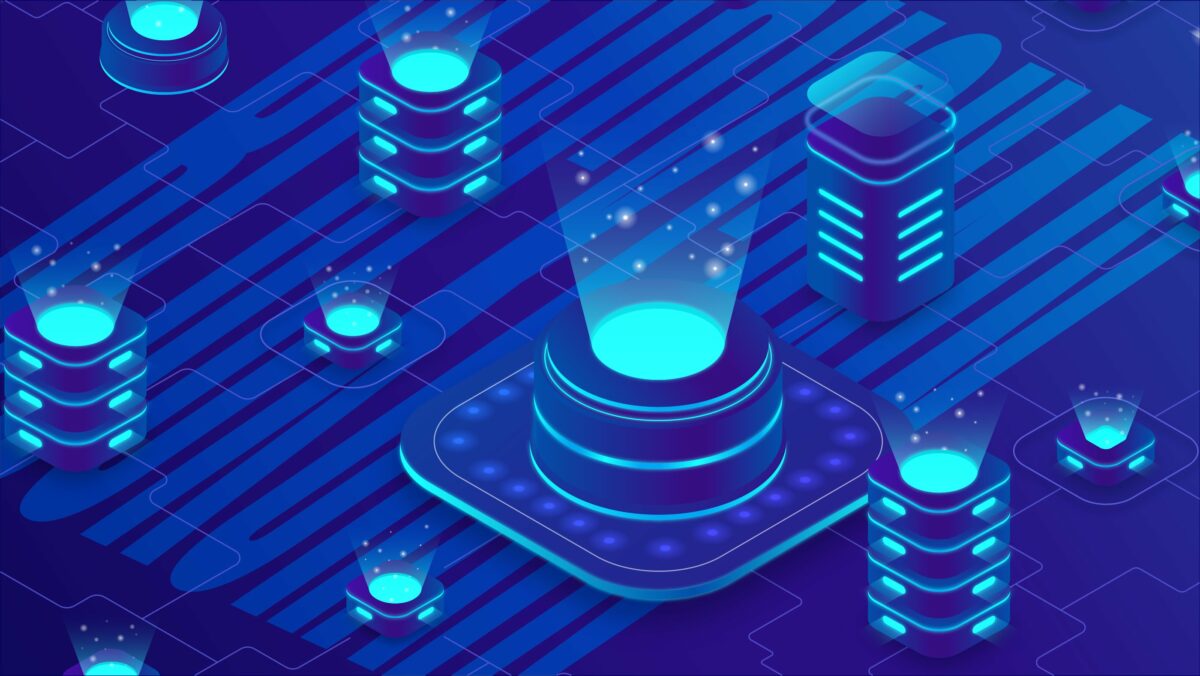Blockchain technology, primarily known for its role in cryptocurrencies, has become a transformative force with the potential to reshape various industries. Initially focused on finance, its applications now extend well beyond numerous sectors.
According to Statista, the market value of blockchain is expected to reach nearly US$1,000 trillion by 2032. In this article, we’ll explore the extensive possibilities of blockchain and investigate its uses in diverse areas.
What Is Blockchain Technology?
A blockchain is a distributed database or ledger that a computer network’s nodes share. It is widely recognised for its key role in cryptocurrency systems to keep a secure and decentralised record of transactions. Blockchains can make data in any sector unchangeable, which means it cannot be altered.
Since blocks cannot be modified, the only necessary trust occurs when a user or program inputs data. This feature lessens the reliance on trusted third parties like auditors, who often increase costs and can make errors.
Following Bitcoin’s launch in 2009, the applications for blockchain technology have grown tremendously through the development of various cryptocurrencies, decentralised finance (DeFi) applications, non-fungible tokens (NFTs), and smart contracts.
The Impact of Blockchain on Various Industries
From finance to healthcare, and from supply chain management to voting systems, blockchain technology is set to transform traditional work practices and foster significant progress worldwide. Let’s explore the uses and benefits of this revolutionary technology together.
Energy and Utilities
In the energy industry, blockchain technology serves various purposes. First of all, it helps automate and clarify grid management and supports sustainable practices with smart contracts. Additionally, it allows for decentralised peer-to-peer energy exchanges. This technology optimises energy distribution and boosts the use of renewable resources.
It also lets consumers engage directly in the energy market, enhancing efficiency and encouraging sustainability by minimising dependence on centralised intermediaries and giving consumers more control over their energy consumption.
Government Services
Governments worldwide are assessing blockchain’s ability to improve public service delivery. Blockchain technology can streamline and clarify processes in identity management, land registration, taxation, and public procurement.
By adopting blockchain, governments can also cut red tape, curb corruption, and enhance citizen services. Blockchain-based voting systems can also improve fairness and integrity in electoral processes, promising a move towards more effective and transparent governance.
Finance
Financial services often face challenges with outdated operational methods, slow payment settlements, and security risks. Blockchain networks increase transparency and efficiency in financial dealings, speeding up business processes and eliminating middlemen for quicker transactions.
Blockchain supports direct transactions between peers, reduces costs, and maintains data integrity through cryptographic checks. Its transparency also aids in better auditing and helps prevent manipulation and fraud.
Insurance
Known for cumbersome paperwork and slow claims processes, the insurance industry can benefit greatly from blockchain by automating claims verification and diminishing fraud opportunities. Smart contracts can execute claims settlements automatically under set conditions.
Blockchain also supports the secure and clear exchange of policyholder details among insurers, which can improve risk evaluation and underwriting.
Real Estate
Real estate deals involve complex procedures and significant paperwork. Blockchain can simplify these transactions by digitalising property records and automating contract execution. Smart contracts remove the need for intermediaries and secure transparent property ownership transfers.
Additionally, blockchain can facilitate fractional ownership, broadening access to real estate investments and streamlining operations to cut costs and improve efficiency.
Healthcare and Sciences
Healthcare and medical professionals are turning to blockchain development to enhance medical data management, track drugs and medical devices, and more.
Blockchain-driven healthcare solutions promise quicker, more efficient, and secure operations in medical data handling and supply tracking, potentially elevating patient care, supporting medical research, and verifying drug authenticity in global markets.
Media and Entertainment
Blockchain can monitor the entire lifecycle of content, protecting digital media and easing the distribution of authentic digital collectables.
Artists using blockchain can largely automate the business management aspects of licensing, contracts, and payments. This automation reduces costs and allows creators to sell their work directly to others without intermediaries, fostering direct interactions between creators and consumers in digital content marketplaces.
Retail Fashion
Blockchain addresses longstanding challenges in the fashion industry by improving data management, enhancing supply chain procedures, and reducing counterfeit risks. It allows brands to tokenise unique assets for easy management, trading, and verification.
Consumers can register and verify luxury items on brand websites, with each item uniquely secured and traceable through digital twin technology that links real items to their digital counterparts.
Sports
Gaming and esports are becoming increasingly popular, especially among millennials and Gen Z users. Creating blockchain-based identities offers exciting new experiences and generates significant new value by boosting fan revenue, supporting asset crowdfunding, trading digital collectables, and establishing verifiable superfan status.
Blockchain games allow for the use of tokenised digital assets that players can trade either in-game or on external markets. The technology also supports instant sports betting with provably fair results. Furthermore, blockchain facilitates the use of smart contracts for payouts, removing the need for traditional middlemen who often take large commissions.
Law
The legal sector has been slow to adopt new technologies. Enterprise blockchain technology helps overcome time-consuming manual tasks and improves accessibility, transparency, cost-effectiveness, speed, efficiency, and data reliability in legal processes.
Lawyers can use blockchain to streamline their transactions, and digitally sign and securely store legal documents. Smart contracts and automated contract management can greatly reduce the time needed to prepare, customise, and manage standard legal documents, with the savings benefiting clients.
Additionally, blockchain simplifies access to legal services, making the justice system less complicated and reducing high legal costs.
Conclusion
Summing up, blockchain technology offers significant benefits for many sectors, including improved transparency, security, efficiency, and decentralisation. As organisations and industries delve deeper into what blockchain can do, we anticipate major changes and a move towards systems that are both more efficient and more reliable in the future.


